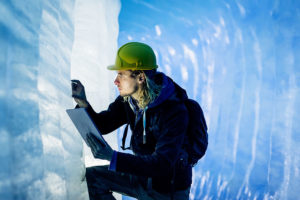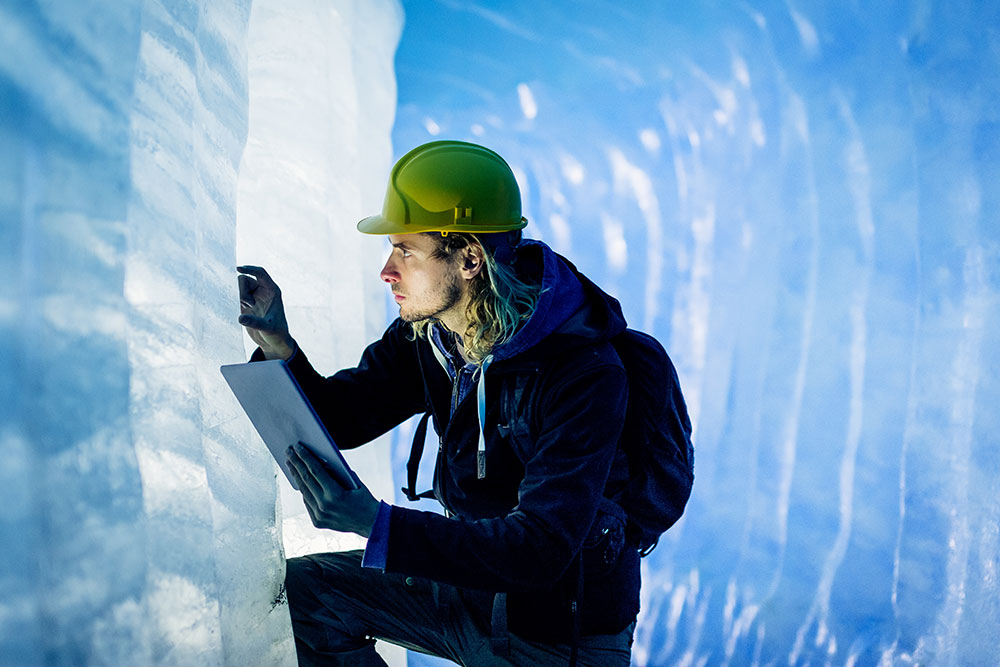Disclaimer: The information on our website is provided for general information purposes only. We make no representations or warranties of any kind, express or implied, about the completeness, accuracy, reliability, suitability or availability with respect to the website or the information contained on our website for any purpose. Any reliance on such information is therefore strictly at your own risk and we are not liable for any damages or losses arising out of or resulting from your reliance on any information contained on our website.
A geological or petroleum technician attempts to discover valuable resources. They do this by analyzing geological samples of minerals and soil. Additionally, they support others to extract and explore natural sources like crude oil, minerals, and natural gas. Geological technicians indicate the potential for exploration to determine chemical or physical properties and test geological samples to check if they meet required quality standards. Next, watch a video and learn more about this career field.
How to Become a Geological or Petroleum Technician
To become a geological or petroleum technician, you usually need an associate’s degree in applied sciences or a certification in science or technology at a minimum; however, most employers prefer a bachelor’s degree. Some schools have internships and hands-on programs where you can gain experience while attending school.-however, some employers may also offer apprenticeships.
While attending colleges, universities, or a vocational school, seek programs in geosciences, mining, or related subjects, such as geographic information systems (GIS). These programs will include geology, math, computer science, chemistry, and physics coursework.
In addition, some geological and hydrologic technicians pursue certifications in Occupational Safety & Health Administration (OSHA) Hazardous Waste Operations and Emergency Response Standard (HAZWOPER). This includes skilled training in health hazards, personal protective equipment, site safety, and additional state or national regulations. There are also voluntary certificates from the American Institute of Hydrology (AIH).
Job Description of a Geological or Petroleum Technician

A geological or petroleum technician determines the content and characteristics of soil samples soil and the minerals are analyzed and tested using testing and laboratory equipment. They analyze samples of earth or liquid to assist engineers and scientists in determining if the chemical or physical properties meet the requirements needed.
Geologists assist in hydrographic, geological, geochemical, geophysical, and/or oceanographic surveys. They also assist in exploratory drilling, underground mine surveys, well logging, and prospecting field trip operations. They assemble and prepare cross sections, sketches, and geological maps to figure out information from section descriptions, well logs, and aerial photos that assists in the overall analyzation of a project.
A geological or petroleum technician should have knowledge of electronics and computers that would include chips, circuit boards, hardware and software, and the programs they must use on-the-job. They need to have knowledge of chemistry, geography, and physics. Most geological or petroleum technicians work in laboratories or offices. However, they also spend time in the field. Most technician’s work full-time.
Article Citations
Bureau of Labor Statistics, U.S. Department of Labor, Occupational Outlook Handbook, Geological and Petroleum Technicians.
National Center for O*NET Development. 19-4041.00. O*NET OnLine.
The career video is in the public domain from the U. S. Department of Labor, Employment and Training Administration.

